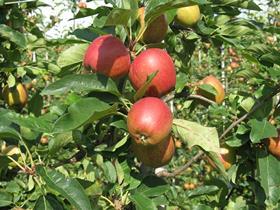
Calls for an end to the ubiquitous use of plastic grew louder this week following the release of two peer-reviewed studies on the presence of microplastics in plants.
Since last year's publication of research estimating that the average person consumes at least 50,000 particles of microplastics a year, and breathes in a similar quantity, all eyes have been on these microscopic pollutants.
But that research, published in Environmental Science & Technology, relied on data from studies measuring only the amounts of microplastic particles found in fish, shellfish, sugar, salt, beer and water, as well as in the air in cities.
The two studies published this week, however, show that microplastics are also contaminating fruit and vegetables.
According to the first study, by University of Catania scientistMargherita Ferrante, apples are the most contaminated fruit while carrots are the most affected vegetable.
Published this week in the journalEnvironmental Research, the report calls for an urgent review of the impact of microplastics on human health.
The second study, set for publication in the journal Nature Sustainability, reportedly demonstrates how plastic is sucked up with water through the root systems of food crops.
The study, performed jointly by Dr Lianzhen Li of the Yanthai Institute of Coastal Zone Research in China and Professor Willie Peijnenburg from Leiden University in the Netherlands, found that microplastics penetrate the roots of lettuce and wheat plants, before being passed to the edible plant parts above ground.
As such, root vegetables, such as carrots, radishes and turnips, as well as leafy vegetables like lettuce, were found to be most at risk of contamination.
Another study published this week in the journal Nature Nanotechnology discovered that plants' absorption of microplastics through their roots slowed their growth, creating smaller plants with shorter roots, possibly impacting incomes for farmers.
Maria Westerbos, the founder of Dutch NGO the Plastic Soup Foundation, commented: “For years we have known about plastic in crustaceans and fish, but this is the first time we have known about plastic getting into vegetables. If it is getting into vegetables, it is getting into everything that eats vegetables as well, which means it is in our meat and dairy.'
Sian Sutherland, co-founder of environmental campaign group A Plastic Planet, called for an urgent investigation into the impact of micro plastics on human health. 'Now more than ever we must listen to the scientists,' she warned, 'not the plastic lobbyists.”



